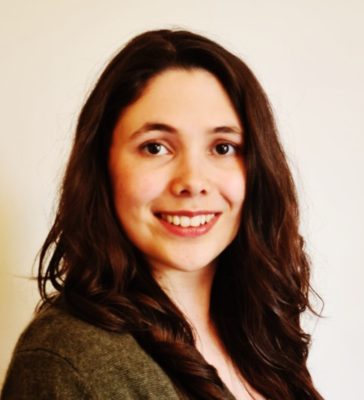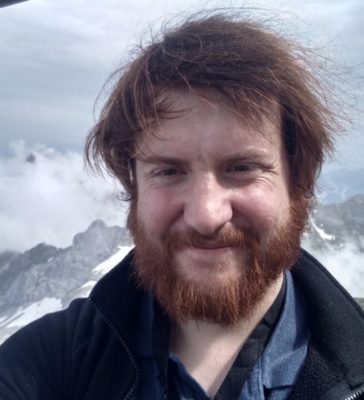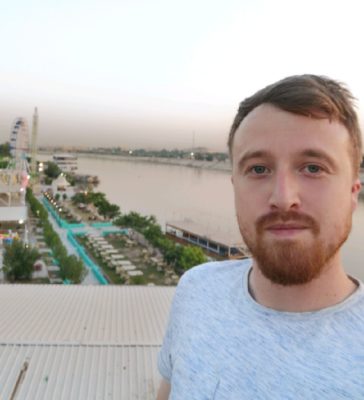
Megan Maunder
Current Employer/Organisation Name
Wellcome
What have you been doing since leaving Exeter, and what are you doing now?
I completed my undergraduate degree, MSci Mathematics (Geophysical and Astrophysical Fluid Dynamics), in 2018 and decided to stay at Exeter to complete my PhD in Mathematics. My thesis was in Space Weather, where I explored Coronal Mass Ejections, using cutting-edge remote sensing and in-situ measurements.
During my PhD, I wore many hats, working in roles across the university, from researcher development and outreach to teaching. I also took on leadership roles and became Chair of the Early Careers Researcher Network for the Royal Astronomical Society.
In 2023, I joined Wellcome’s Discovery Research team as a Research Manager. In my role, I lead various programmes and projects across a broad portfolio of curiosity-driven research and innovation in health and life research.
In my role, I convene, fund, and share insights that align with Wellcome’s Discovery Research strategies. This means I initiate and drive forward various projects, like funding calls and convening groups, interacting with incredible researchers from all fields of research, both inside and outside the organisation. My work revolves around empowering researchers, technologists, and developers to realise their Discovery through funding calls and wrap-around support and ensuring that Wellcome can be the catalyst that transforms ideas into reality to make the world a healthier place.
Why did you choose this career? And what do you enjoy most about your work?
During my PhD, I realised that I got excited about big ideas and how to make change, but I wanted to be the person who made that happen rather than the person who made discoveries.
I’m incredibly passionate about building inclusive and accessible environments so that researchers from all backgrounds can thrive and bring their ideas to fruition. I truly believe this is key to driving innovation, pioneering research, and technology development.
I love the diversity of my work. I have the chance to meet incredible people and hear ground-breaking ideas on cutting-edge research. Every day brings something new! Some days, you’ll find me running events, designing workshops, and figuring out how to draw out the best ideas from people. Other days, I’m reading and writing reports and presenting ideas to support research pipelines. The research landscape is constantly evolving and I enjoy being a part of driving that forward.
What did you enjoy most about your programme and what was the biggest highlight?
My favourite part of the programme was the applied mathematics modules. I really found my niche in Vector Calculus and Fluid Dynamics, which inspired me to pursue a PhD in Space Weather. I love that type of problem-solving. The diversity of the modules available on the programme also allowed me to explore mathematics in different contexts and develop skills in essay writing and programming through modules like History of Mathematics and Intro to C++.
What did you most enjoy about studying here?
I loved the sense of community. The academic team supported me in exploring my interests, and when I found things difficult academically. I threw myself into societies, got involved as an academic representative, and made friends for life, as well as leaving with a fantastic degree.
I also met my husband at Exeter through music societies, and we shared a joint maths and engineering module, so I’m remiss not to include that as a highlight!
Why did you choose to study at Exeter?
If I’m honest, I fell in love with Exeter at my first open day. I loved the green open spaces and campus feel. When I came back for an offer holder day, I felt both inspired and supported by the academic staff, and I felt Exeter was a place I would thrive both personally and academically.
I chose Exeter for my PhD because I loved the community, and I wanted to continue to study Space Weather. I then managed to get a PhD studentship to continue my studies under the supervision of an excellent research leader.
What skills and experiences have been most useful for your career?
The course gave me many key skills for the future, from programming to logic and presentation skills. When it comes to problem solving, my training in mathematics ensures I always start with a definition, list my assumptions, and work out from there.
My PhD built upon the technical skills I started to develop in my undergraduate degree and also taught me how to clearly present complex ideas and capture audiences..
What advice would you give to a current student who wishes to pursue your career?
Follow your passions and curiosity. I ended up in my current role because I said yes to opportunities beyond my immediate study, which equipped me with the skills needed to manage and drive research programmes.

